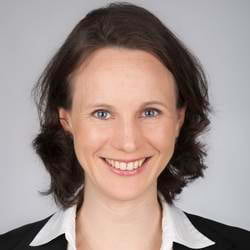Bestätigte Sessions
Predictive Analytics World Berlin
18.-19. November 2019, Estrel Hotel Berlin
Das komplette Programm folgt in Kürze.
Customer Data Platform (CDP) systems are the newest answer to an old question: how to assemble a complete view of each customer. This session explores the reality of what CDPs can and cannot do, how CDPs differ from other systems, the types of CDP systems available, and how to find the right CDP for your purpose, especially with regard to data science projects and predictive modeling. You will come away with a clear understanding of where CDP fits into the larger data management landscape, what distinguishes CDP from older approaches to customer data management, and the state of the CDP industry in Europe.
Machine learning algorithms for time series forecasting have become increasingly powerful in recent decades. Nevertheless, not only the quality of the forecasts is important, but also their acceptance by the staff. Especially with regard to automatic forecasts, distrust may arise among dispatchers. Furthermore, long-standing employees often have a detailed overview of customer behavior, market situation and other important factors. Therefore, it makes sense to include this expert knowledge in the predictions of complex algorithms. This can be achieved through the maximum entropy approach, which is discussed in this presentation. The approach is derived in detail and applied to real data.
We introduce a new method, based on the topological data analysis (TDA), to financial time series and detect early warning signals of approaching financial crashes. Analyzes of the time-series of daily log-returns of major US stock market indices and cryptocurrencies shows that in the vicinity of financial meltdowns, the Lp-norms of persistence topological landscapes exhibit strong growth. Remarkably, the average spectral density at low frequencies of the derived Lp-norms demonstrates a strong rising trend at least 100 trading days prior to either dotcom crash on 03/10/2000, or to the Lehman bankruptcy on 09/15/2008. Our study suggests that TDA provides a new type of predictive analytics, which complements the standard statistical measures. Our approach is very general and can be used beyond the analysis of financial time series.
E-Mails from KfW customers have to be routed to 60 folders by topic before they can be answered efficiently. Currently, a rule-based system is in place. With a neural network model, the fraction of e-mails routed correctly is doubled, halfing the time for manual sorting.
While in the US the prediction of real estate prices out of data became very popular and creates billionaire companies the recent years, this is still a quite new approach in the European market. McMakler is a digital real estate broker company who thinks this is possible in Europe, too. However, when starting with this project in 2018 it became clear that predicting the value of a property is a challenging task, starting with the availability of enough data, ending with the efficient (especially company wide accepted) use of predicted values in real business. This talk brings you close to the implementation of an innovative project, with all the obstacles and successes on the way.









